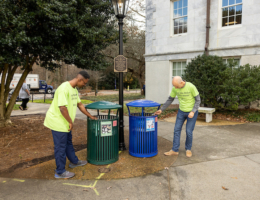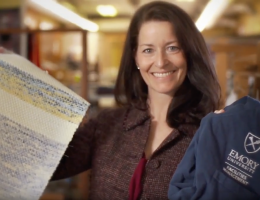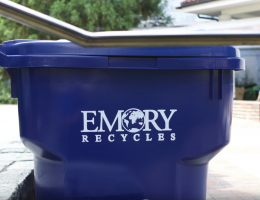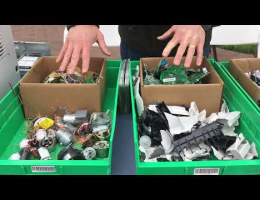Recycling & Re-Use Highlights
An average American generates about 4.4 pounds of landfill waste every day. Emory encourages all members of its community to reduce the amount of waste sent to landfills – and the Office of Sustainability Initiatives is leading a multitude of efforts designed to support that goal.
By 2025, Emory University is committed to diverting 95% of non-construction waste from municipal waste landfills (except regulated lab and medical waste) and composting, recycling, or reusing at least 95% of food waste, non-hazardous animal bedding, and construction materials.
Recycling & Re-Use Benefits
Zero Landfill Waste Emory went into effect in 2018. Designed to achieve our goal to divert 95% of waste from landfills by 2025, this extensive program offers convenient recycling stations across campus and clear instructions to enable the entire campus community to eliminate landfill waste.
By recycling at Emory, we reduce greenhouse gas emissions from landfills, reduce the negative effects of landfills on already marginalized populations, and decrease habitat loss and animal displacement due to landfills. Recycling conserves natural resources, increases economic security, prevents pollution, and helps create jobs in the community.
How It Works
- The majority of the University’s recycling is coordinated by Emory Recycles, a department of Campus Services.
- Emory has a robust electronics recycling process. Whether a university-purchased item or personal electronics, members of the Emory community are expected to learn more and properly recycle electronics.
- Emory Surplus Property, a department in the Campus Services Division, is Emory’s on-campus location for disposing of all university-owned surplus furniture, equipment and vehicles. Surplus Property, located on Emory’s Briarcliff campus, sells used Emory property, prolonging furniture life and decreasing landfill waste.





